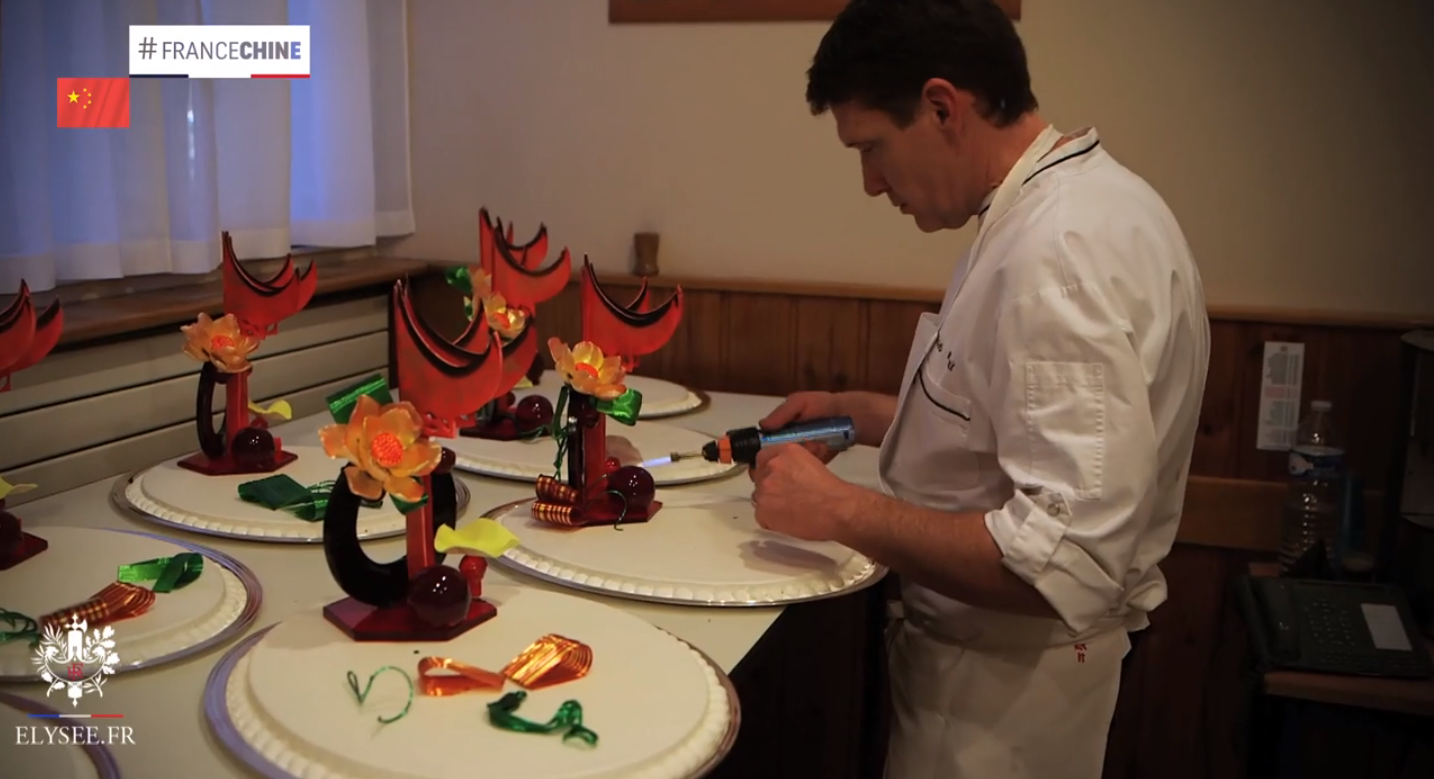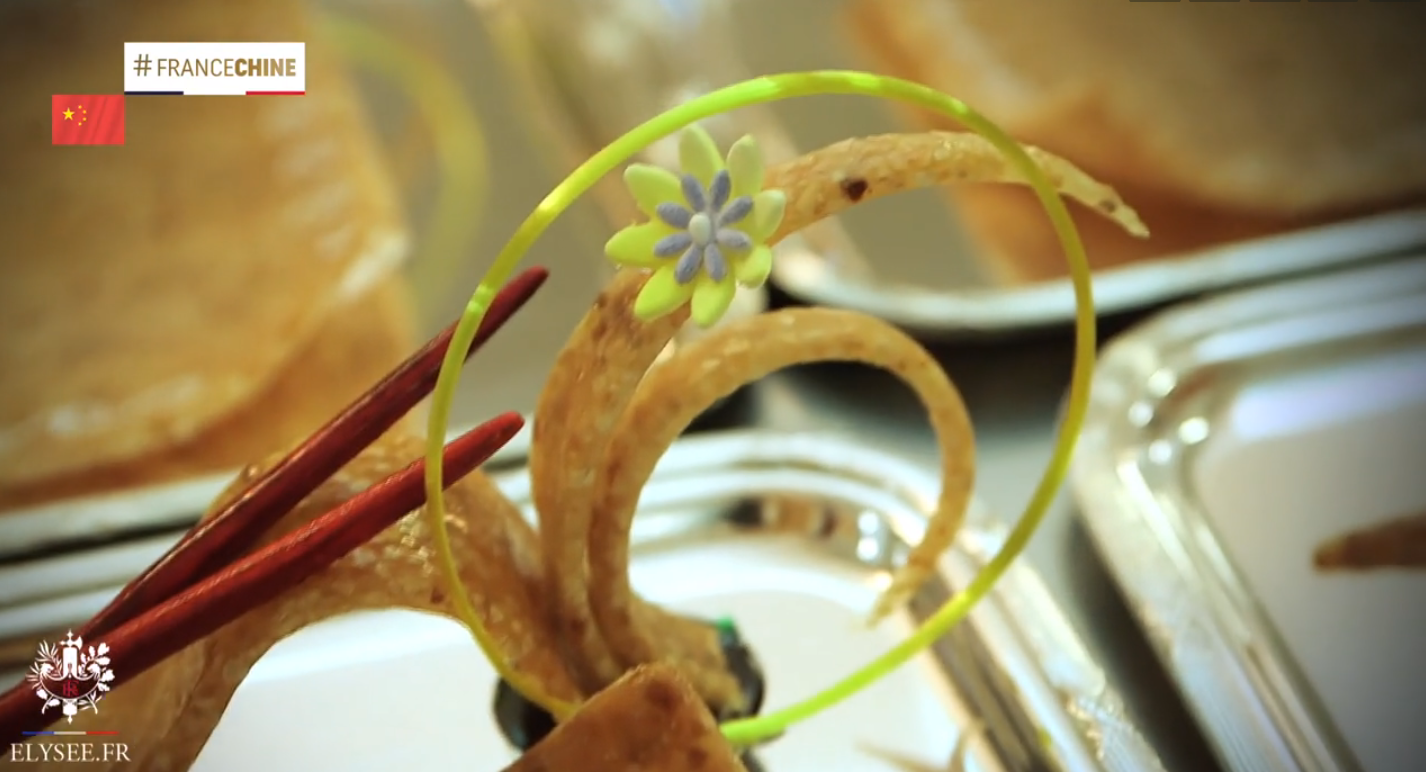It’s been an exciting few months in the world of culinary diplomacy. And I’ve been too lax in keeping you all abreast of the issues — the following took place in late March, 2014. So without further ado…
CULINARY DIPLOMACY GAFFE OF THE YEAR?
“Minister Slams Elysée’s Cooking as ‘Disgusting.'”
That’s right, folks. After a State Dinner hosted by Présidente François Hollande for his Chinese counterpart President Xi Jinping, French Minister for Foreign Commerce Nicole Bricq called the meal “dégueulasse,” or disgusting (and it was, of course, caught on tape). The menu, which included gourmandise de foie gras truffé accompanied by a Chateau d’Yquem 1997, volaille landaise rôtie et une viennoise de champignons accompanied by Château Lafite 1999, and more was prepared by the new chef de cuisine at l’Elysée, Guillaume Gomez, who took over in November 2013 after 40-year veteran Bernard Vaussion retired.

“How can you say such a thing? The menu was perfect” said Gilles Bragard, the general secretary of Le Club des Chefs des Chefs and author of the book on Culinary Diplomacy, Chefs des Chefs. And how could the foreign commerce minister of all people, the one person tasked with promoting the products of France, be so callous as to say it in full view and earshot of the press? Perhaps her foie gras was underdone, the d’Yquem served too cold, the chicken rubbery, and the Lafite was corked. Maybe that’s the case. But if it was? Keep it to yourself, woman! Or confide in someone who was also there, and could corroborate, far far away from cameras and journalists. Don’t walk out of a beautiful, exclusive, well-planned and executed state meal and complain about the food. It reminds me of the time Craig Claiborne won a meal anywhere in the world, chose Café Denis in Paris, was treated to a 33-course, 4 1/2 hour, $4,000 meal, and called the presentation “mundane” and the over-all display “undistinguished” (and yes, People magazine existed in 1975). It’s okay to not blindly gush over displays of generosity and wealth, and some level-headed objectivity is necessary to prevent unabated critical inflation, but when there are relationship questions at hand, especially questions of diplomacy and bilateral relations, it’s okay to tone down the negativity and gush a little.

Bricq, you won’t be surprised to hear, was fired from her position soon thereafter. Was it her comments about the meal at l’Élysee, or the fact that Hollande’s party suffered in recent elections and he was forced to replace her? You be the judge. But just remember, France takes its food pretty seriously; ten years ago Chef Bernard Loiseau committed suicide after rumors arose that his restaurant would lose its third Michelin star, and in 1995 former French President François Mitterrand broke the law to enjoy the last course of his final meal, the delicate ortolan bird eaten whole, wings, beak, and all, underneath a white cloth to shield the act from God. Mitterrand died ten days later. In a nation in which three-star chefs commit suicide for negative reviews or former presidents end their lives with a dish offensive to God and the law, could a minister be sacked for criticizing the food at l’Élysee? Maybe.
Post-Script. I wonder if “se bricquer” will end up entering the French language to mean “putting one’s foot in one’s mouth soon after consuming foie gras and Chateau d’Yquem and losing one’s job over it,” similar to the 20-year old Japanese expression “bushuru” or “bushu-suru,“ or to vomit on one’s host, as George H.W. Bush famously did during a state dinner in Japan in 1992. Just speculating.